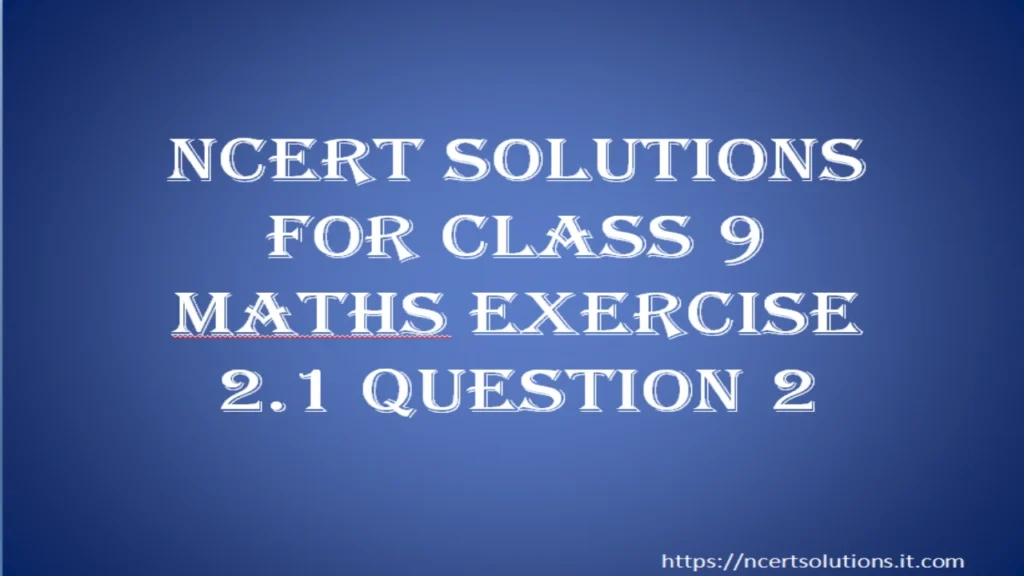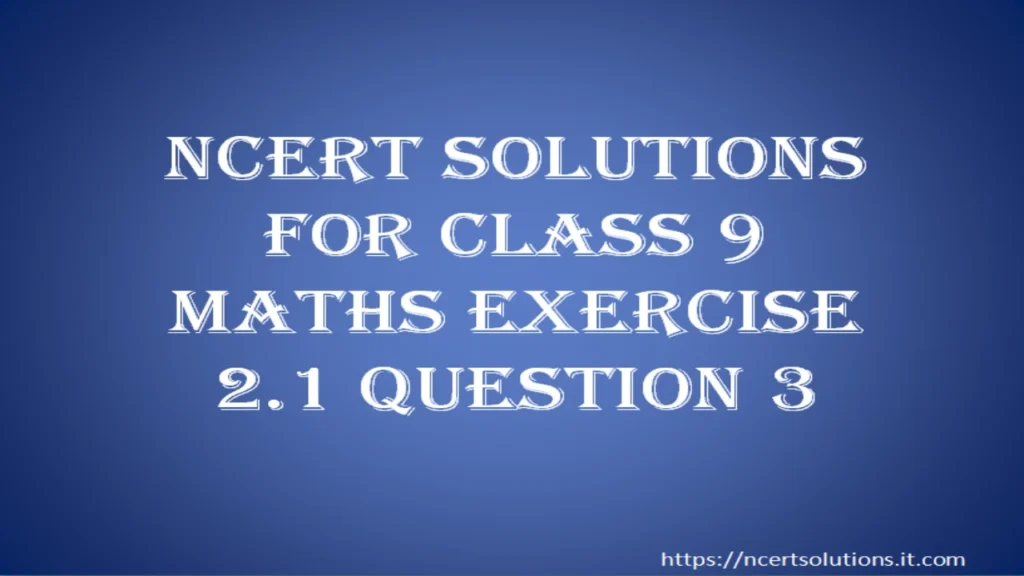NCERT Solutions for Class 9 Maths Exercise 2.1 Question 1

Understanding the Question 🧐
This question asks us to check two things for each expression:
- Is it a polynomial? For an expression to be a polynomial, the exponents (powers) of the variables must be whole numbers (0, 1, 2, 3, …).
- If it is a polynomial, is it in one variable? This means the expression should only use one letter (like only ‘x’ or only ‘y’).
We need to check both conditions and give a reason for our answer.
Which of the following expressions are polynomials in one variable and which are not? State reasons for your answer.
(i) &&4x^2 – 3x + 7&&
(ii) &&y^2 + \sqrt{2}&&
(iii) &&3\sqrt{t} + t\sqrt{2}&&
(iv) &&y + \frac{2}{y}&&
(v) &&x^{10} + y^3 + t^{50}&&
Part (i): &&4x^2 – 3x + 7&& 📝
Analysis:
- Variable Check: The only variable used is ‘&&x&&’. So, it is in one variable.
- Exponent Check: The powers of &&x&& are 2 and 1. The constant term 7 can be written as &&7x^0&&, so its power is 0. All exponents (2, 1, 0) are whole numbers.
Conclusion: Yes, this expression is a polynomial in one variable.
Part (ii): &&y^2 + \sqrt{2}&& 📝
Analysis:
- Variable Check: The only variable used is ‘&&y&&’. So, it is in one variable.
- Exponent Check: The power of &&y&& is 2, which is a whole number. The square root is on the coefficient (&&\sqrt{2}&&), not the variable. This is perfectly fine for a polynomial.
Conclusion: Yes, this expression is a polynomial in one variable.
Part (iii): &&3\sqrt{t} + t\sqrt{2}&& 📝
Analysis:
- Variable Check: The only variable used is ‘&&t&&’.
- Exponent Check: The first term, &&3\sqrt{t}&&, can be written as &&3t^{1/2}&&. The exponent here is &&\frac{1}{2}&&.
Since &&\frac{1}{2}&& is a fraction and not a whole number, the expression fails the test for being a polynomial.
Conclusion: No, this is not a polynomial because the variable &&t&& has a fractional exponent.
Part (iv): &&y + \frac{2}{y}&& 📝
Analysis:
- Variable Check: The only variable used is ‘&&y&&’.
- Exponent Check: The second term, &&\frac{2}{y}&&, can be written as &&2y^{-1}&&. The exponent here is -1.
Since -1 is a negative integer and not a whole number, the expression is not a polynomial.
Conclusion: No, this is not a polynomial because the variable &&y&& has a negative exponent.
Part (v): &&x^{10} + y^3 + t^{50}&& 📝
Analysis:
- Exponent Check: The powers of the variables are 10, 3, and 50. All of these are whole numbers. So, the expression is a polynomial.
- Variable Check: The expression uses three different variables: ‘&&x&&’, ‘&&y&&’, and ‘&&t&&’.
Since it uses more than one variable, it is not a polynomial in *one* variable.
Conclusion: This expression is a polynomial, but not in one variable. It is a polynomial in three variables.
- Rule 1: The exponents of the variable must be whole numbers (0, 1, 2, …). No fractions, no decimals, no negative numbers!
- Rule 2: There must be only one type of variable throughout the expression.
FAQ ❓
Q: What makes an expression a polynomial?
A: An expression is a polynomial if the exponents (powers) of all its variables are whole numbers (0, 1, 2, 3, and so on). There should be no fractional or negative powers on the variables.
Q: Why isn’t &&3\sqrt{t} + t\sqrt{2}&& a polynomial?
A: It’s not a polynomial because the term &&3\sqrt{t}&& can be written as &&3t^{1/2}&&. The exponent &&1/2&& is a fraction, not a whole number, which violates the definition of a polynomial.
Q: Why is &&y^2 + \sqrt{2}&& a polynomial, but &&y + \sqrt{y}&& is not?
A: In &&y^2 + \sqrt{2}&&, the square root is on the coefficient (the number &&\sqrt{2}&&), which is allowed. The power of the variable &&y&& is 2, a whole number. In &&y + \sqrt{y}&&, the square root is on the variable, meaning its power is &&1/2&&, which is not a whole number. Therefore, &&y + \sqrt{y}&& is not a polynomial.
Further Reading 📖
To learn more about polynomials, you can refer to the official NCERT textbook for Class 9 Maths, Chapter 2. More resources are available on the NCERT website at https://ncert.nic.in/.


